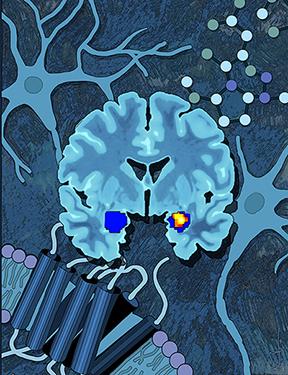
The Program in the Systems and Behavioral Neuroscience program is designed to provide students with an understanding of the techniques and approaches used to study the nervous system. Current research being conducted by mentors in this program can be categorized in three broad topics: a) the mechanisms of sensory system development and plasticity, b) the influence of experience on learning and memory using anatomical, electrophysiological, and behavioral techniques, and c) the mechanisms by which neuroendocrine hormones influence memories for meaningful experiences. See PhD in S&Bn track program requirements and milestones here.
- Peter Brunjes studies the development and the synaptic organization of the olfactory system.
- JC Cang studies the organization, function and development of the mammalian visual system
- Jessica Connelly studies complex phenotypes and human disease at the level of transcription and epigenetic regulation.
- Alev Erisir studies synaptic circuitry, development and plasticity in visual and gustatory pathways.
- David Hill studies the neurophysiological, morphological, and behavioral development of the taste system
- Xiaorong Liu studies the development and regulation of retinal circuitry and functions
- Dan Meliza studies neural mechanisms of pattern learning and recognition in the auditory system of songbirds.
- Adema Ribic studies how nerve cells assemble into circuits and how those circuits learn and adapt to the environment.
- Cedric Williams studies physiological changes induced by emotionally arousing events.
A dominant feature of the Systems and Behavioral Neuroscience Program is that students are trained to apply interdisciplinary techniques to questions of neural and endocrine influences on behavior. Thus, an individual student's project might require the use of a combination of behavioral, pharmacological, anatomical and physiological procedures. The Neuroscience laboratories, housed in the Life Sciences Annex of Gilmer Hall, are well-equipped for this multi-faceted approach to research.
The following faculty will consider graduate applicants to the Systems and Behavioral Neuroscience Programs for entrance in August 2025: Jessica Connelly, Alev Erisir, Dan Meliza, and Adema Ribic
The S&BN Program in Psychology accepts applications for Interdisciplinary Doctoral Fellowships in Quantitative Neurobiology of Behavior.
Please note: The application for the PhD programs in the Department of Psychology has eliminated the GRE requirement, beginning with the applications for the 2021 admissions.
Training Programs and Interdisciplinary Fellowships that supplement the 5-year guaranteed funding from the Graduate School of Arts and Sciences:
- Interdisciplinary Doctoral Fellowships in Quantitative Neurobiology of Behavior
- Expand Graduate Training Program | Expand video